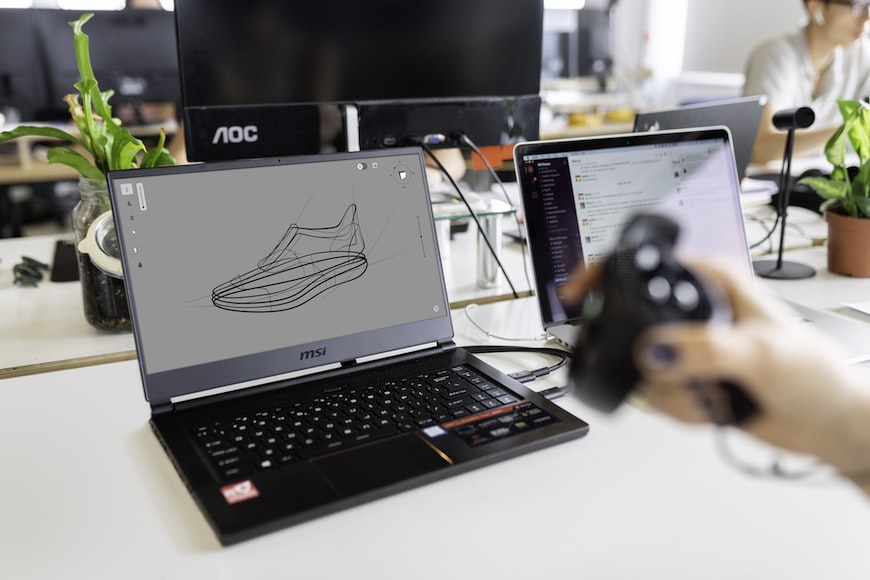The Self-Taught Designer: How to Succeed in Industrial Design without a College Degree
Industrial design is a creative field that involves the design of various products and systems to enhance their functionality, aesthetics, and user experience. It is a field that has become increasingly popular in recent years, with many people seeking to become industrial designers. While a college degree in industrial design can provide a solid foundation and open up many doors, it is not always necessary to have a degree to become a successful industrial designer. In this article, we will explore how to succeed in industrial design without a college degree.

Photo: ThisisEngineering RAEng/Unsplash
- Develop a strong work ethic
Becoming a self-taught industrial designer requires dedication and discipline. You must be willing to put in the time and effort necessary to learn the necessary skills and build a strong portfolio. Developing a strong work ethic will help you stay motivated and on track.
- Learn the basics
To become a successful industrial designer, you must have a strong foundation in the basics of design. This includes an understanding of color theory, composition, and form. There are many resources available online and in books to help you learn these skills.
- Build your skills
Industrial design requires a wide range of skills, including sketching, 3D modeling, and prototyping. You can develop these skills through online tutorials, classes, and practice. It is important to constantly challenge yourself and seek out new techniques to improve your skills.
- Create a portfolio
Your portfolio is your calling card as an industrial designer. It showcases your skills and demonstrates your design process. Even without a college degree, a strong portfolio can help you land jobs and clients. Make sure to include a variety of projects that showcase your range and expertise.
- Network
Networking is an important part of any career, and industrial design is no exception. Attend design events, connect with other designers on social media, and seek out mentors who can provide guidance and advice. Building a network can lead to job opportunities and collaborations.
- Stay current
The field of industrial design is constantly evolving, with new technologies and design trends emerging all the time. It is important to stay current with the latest developments in the field, whether through attending conferences, reading design blogs, or following industry leaders on social media. This will help you stay ahead of the curve and remain competitive in the job market.
Interesting fact: The job outlook for industrial designers is positive, with the Bureau of Labor Statistics projecting a 3% growth rate from 2020 to 2030.
- Be adaptable
As a self-taught industrial designer, you may face unique challenges in the job market. It is important to be adaptable and willing to take on a variety of projects and roles. This can help you gain experience and build your reputation in the industry.
- Believe in yourself
Perhaps the most important aspect of succeeding as a self-taught industrial designer is believing in yourself. You must have confidence in your abilities and the value that you bring to the table. With hard work, dedication, and a strong portfolio, you can succeed in this exciting and rewarding field.
In conclusion, becoming a successful industrial designer without a college degree is possible, but it requires dedication, hard work, and a strong portfolio. By developing a strong work ethic, building your skills, creating a portfolio, networking, staying current, being adaptable, and believing in yourself, you can succeed in this competitive field. Whether you are just starting out or are looking to take your career to the next level, the key is to never stop learning and growing as a designer.
- A college degree is not always necessary to succeed in industrial design.
- Developing a strong work ethic is essential for self-taught industrial designers.
- Building a strong foundation in the basics of design is crucial.
- Building skills through online tutorials, classes, and practice is important.
- Creating a strong portfolio is essential for showcasing your skills.
- Networking and staying current with industry developments is important.
- Being adaptable and willing to take on a variety of projects can lead to more opportunities.
- Believing in oneself and having confidence in one's abilities is crucial.
FAQ
What is the difference between an industrial designer and a product designer?
While there is some overlap between the two roles, industrial designers typically focus on the function and usability of a product, while product designers focus more on the aesthetics and visual appeal.
What kind of products do industrial designers work on?
Industrial designers work on a wide range of products, from household appliances to cars and everything in between.
What industries employ industrial designers?
Industrial designers are employed in a variety of industries, including manufacturing, wholesale trade, and professional, scientific, and technical services.
What are some current trends in industrial design?
Some current trends in industrial design include the use of sustainable materials and the incorporation of smart technology into products.